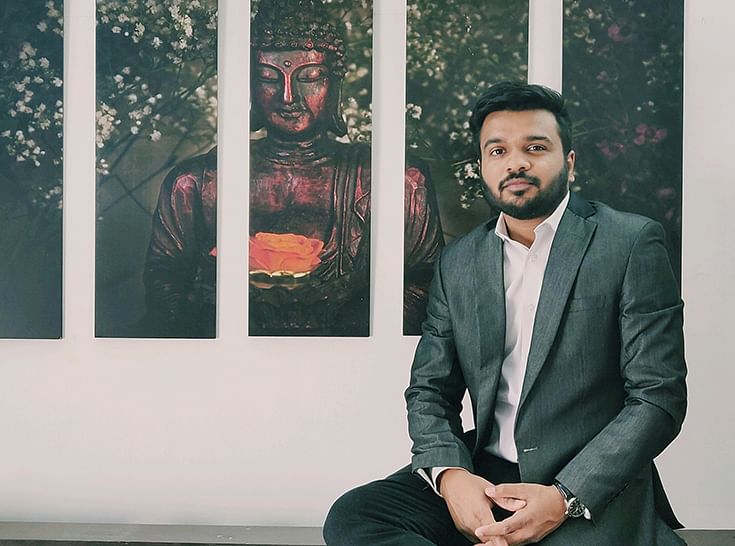Exclusive: Taiwanese battery pack and cell maker JS Power eyes Indian EV market
The Indian EV market may be among the youngest but has very high growth potential. Taiwan’s JS Power is keen to cash in on this opportunity by addressing electric two- and three-wheeler makers' battery needs and is developing a battery chemistry specific to India.
Even though the government has put its might behind the plan to accelerate electric mobility in India, adoption of electric vehicles (EVs) remains restricted to three-wheelers / rickshaws, two-wheelers and public sector transport undertakings and government departments. Consumer demand for electric vehicle passengers is abysmal. Other than the higher price compared to its IC-engined cousins, what deters buyers from going in for EVs, whether on two or four wheels is the inadequate EV charging infrastructure in the country. This is an issue several companies have recognised, and some are seeing it as a business opportunity. Taiwan's JS Power is one of them.
The transport sector accounts for 18 percent of total energy consumption in India and the Bureau of Energy Efficiency estimates that close to 94 million tonnes of oil equivalent (MTOE) energy is required to support that. If India were to follow the current trends of energy consumption, it would require an estimated 200 MTOE of energy supply by 2030 to meet demand. Electric mobility presents a viable alternative to meet this energy gap without compromising BS VI emission norms especially in the backdrop of the commitment by the government to reduce emission intensity by 33- 35 percent by 2030 from 2005 levels.
The Taiwan-based JS Power, which claims to have experience in battery packs and cell manufacturing and already has a customer base in Taiwan, Japan and Europe, aims to become an active energy solution provider in the electric two- and three-wheeler segments in India. At present it manufactures lithium-ion batteries for mobile phones, tablets, computers, electric bicycles, electric vehicles, drones and energy storage needs.
Speaking to Autocar Professional, Sajal Kishore, CEO, JS Power India, says the company is targeting “the electric two- and three-wheeler segments in India with battery packs ranging between 1 – 5kwH for both fixed and swap applications, while in parallel focusing on stationary energy storage solutions in India.”

Sajal Kishore, CEO, JS Power India: "In addition to the commonly known chemistries like NMC and LFP, we are currently developing a new combination chemistry specific to India, which focuses on high temperature sustainable performance and lifecycle improvement."
He further elaborates that the battery packs are backed by patented safety technologies like “Stoba, a proprietary multi-mechanism that efficiently reduces thermal runaway and discharge and Anti-Propagation, a proprietary battery pack design which balances heat generation and heat removal. In addition to the commonly known chemistries like NMC and LFP, we are currently developing a new combination chemistry specific to India, which focuses on high temperature sustainable performance and lifecycle improvement. We are looking forward to explore strategic partnerships and ties with Indian companies which can help the domestic market in developing an EV ecosystem and we are excited to be a part of this revolution.”
Detailing the company’s footprint in India, he says: "JS Power was set up in 2006 with a focus on localising battery pack and cell manufacturing in Taiwan. Since quality is a prime parameter for these products, many battery packs were shipped to Taiwan from Japan at that time. In 2009, JS Power became the first domestic company in Taiwan to get certification and the subsidy for e-scooter lithium-ion battery packs.”
At present, JS Power has a manufacturing facility in Zhunan Science Park near Taipei, Taiwan and has a manufacturing capacity of 1GwH annually. The company's products find applications in automotive, energy storage, laptops, robots, telecommunication, drones and other segments. It counts the likes of Sharp, Sony, Dell and French electric scooter maker Matra among its clents.
The dedicated R&D team in Taiwan focuses on new product developments, and counts the Industrial Technology Research Institute, Taiwan as its innovation partner. Together with ITRI, JS Power says it has developed breakthrough solutions for the industry.
Kishore reveals that JS Power plans to invest around $4 million (Rs 30 crore) towards creating a dedicated R&D and testing team in India to support domestic as well as international business. In addition, it is already in talks with several Indian companies who are looking to partner lithium-ion battery manufacture. As regards partnering other companie,s Kishore says, "We shall have our own manufacturing setup and look forward to partner with other relevant players to license manufacturing capabilities."
Q&A: Ann Wong, President, JS Power

What is the plan behind establishing JS Power’s presence in India?
The idea is to use our global experience in battery packs and localise our know-how for the Indian market. We shall set up a local R&D centre along with battery pack assembly. Initially, the lithium cells will be sourced from our factory in Taiwan.
Are you supplying any to electric two- and three-wheeler OEMs globally?
We have developed and supplied battery packs for electric two-wheeler companies like Matra in France and also supplied packs through Itochu in Japan. For electric three-wheelers, we are currently working on new projects in Philippines and Africa.
Will you also supply to electric cars and commercial vehicles in India?
As of now, our focus is on two- and three-wheelers in India. We have experience with electric buses and we will explore this opportunity in the future.
How do you plan to compete against global and local battery manufacturers in India?
Although there is a surge in the number of pack manufacturing companies in India, there is not a single local cell manufacturer today and hence the companies depend upon supply from China. Since we manufacture our own cells in Taiwan, we can control the quality of our final product more effectively. The idea is to differentiate our products through overall quality which shall lead to better life cycle and sustainable performance.
Will you be open to partnering established battery makers and other stakeholders in India?
We are open to exploring partnership opportunities through licensing with the right battery pack manufacturers. I should add that various OEMs and large fleet operators, who are looking to scale up their operations and wish to have an in-house manufacturing facility, can collaborate with us for the same.
Are you also looking at other battery chemistries (solid state, Al-Air, hydrogen fuel cell)?
Currently, we are focusing on chemistries within lithium-ion. As I said, we are developing combination chemistry specific to the India market.
What is the potential business revenue for JS Power in India?
We are targeting revenues of Rs 250 crore by 2022 but considering the impact of Covid-19, this needs to be revisited.
RELATED ARTICLES
Cosmo First diversifies into paint protection film and ceramic coatings
The Aurangabad, Maharashtra-based packaging materials supplier is leveraging its competencies in plastic films and speci...
JSW MG Motor India confident of selling 1,000 M9 electric MPVs in first year
The 5.2-metre-long, seven-seater luxury electric MPV, which will be locally assembled at the Halol plant in Gujarat, wil...
Modern Automotives targets 25% CAGR in forged components by FY2031, diversifies into e-3Ws
The Tier-1 component supplier of forged components such as connecting rods, crankshafts, tie-rods, and fork bridges to l...






 04 Apr 2020
04 Apr 2020
 47590 Views
47590 Views










 Autocar Professional Bureau
Autocar Professional Bureau




